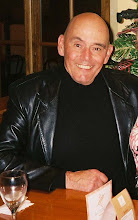At the end of the state funeral for Canadian Prime Minister Pierre Trudeau on October 3, 2000, official mourners were milling about in front of Montreal’s Notre-Dame Basilica. Cuban president Fidel Castro stepped over to Jimmy Carter to ask a serious political question:
What did Carter think of using the love of baseball shared by Cubans and Americans as a way to begin normalizing relations between the two nations? Castro even offered to send an airplane to bring Carter and anyone else the former president thought should accompany him to Havana for a meeting to begin the process.
Carter thought it a terrific idea and when he returned home, he called Paul Beeston, then Major League Baseball’s chief operating officer. Would Beeston travel to Havana with Carter to cut a deal with Castro? Beeston agreed and when Carter asked the White House for clearance, Bill Clinton green lighted the trip.
But before the meeting could be scheduled, the Supreme Court gave George Bush the presidency. Bush had campaigned hard on a vitriolic anti-Castro platform in South Florida, Between the old cold warriors and neo-cons surrounding him, Bush would never endorse a sensible Cuban policy so Carter and Beeston never met with Castro to work out "baseball diplomacy." The best chance since 1962 to co-exist with Cuba disappeared in a cloud of dust thicker than when David “Big Papi” Ortiz slides into second.
Obama’s Opportunity
David Erickson, a senior fellow at The InterAmerican Institute and author of The Cuba Wars told the PBS NewsHour’s Ray Suarez last week that Cubans in the US and on the island look at the incoming Obama administration with both hope and fear. “There’s hope there will be change in US-Cuba relations and fear it won’t come fast enough.”
Not since Allan Dulles sabotaged Pres. Dwight Eisenhower’s attempt to establish a rapport with the Cuban revolution in 1959 has there been as good an opportunity to put decades of failed American policy in the past. On the NewsHour, Erickson added, “Five decades of evidence shows that the US attempt to starve out the Castro regime hasn’t worked. The United States must take a far-ranging look at its relationship with Cuba.”
The fact is, Cuban-Americans – and Americans generally – simply ignore the countless bans on everything involving Cuba. Travel restrictions? Americans detour through Canada, Mexico or the Bahamas to holiday in Havana or Varadero. Ban sending cash to Cuban family members? Non-US organisations and even Canadians and Mexicans on holiday carry money to the Cuban relatives of Americans. Trade restrictions? Establish a complex web of arms-length, off-shore subsidiaries as difficult to unravel as Rubic's cube.
The policy is a charade.
Moreover, with first generation exiles who fled the revolution dying off, second and third generation Cuban-Americans see the folly in American policy.
“It’s crazy,” a dazzling Cuban-American woman living in Miami told a friend of mine who was sitting with her at the pool bar of a Varadero resort. “I have to fly to Nassau and wait three hours for a connecting Cubana flight just to get here. It doesn’t take you that long from Montréal.”
Priorities and Politics
Adjusting America’s Cuba policy will not be Obama’s top priority, not with needing to get his $800-billion economic recovery plan through Congress quickly, disengaging from Iraq, figuring out what will be workable in Afghanistan, undoing Bush’s damaging executive orders, closing GITMO, and a host of other pressing matters.
Moreover, attempts to change Washington’s relationship with Cuba will run into rear-guard attacks from right-wing Republicans, neo-cons and aging cold warriors. Using high voltage words like “henchmen," former Bush Latin America advisor Adolfo Franco said on the same NewsHour segment that Obama should take the advice of John McCain and not meet with Cuban officials. He didn’t explain why anyone in the White House should listen to McCain on anything.
“This is not the time to infuse the Cuban economy with foreign currency dollars,” Franco stated. “Instead, we should stand with those fighting Castro.”
Except the only people still fighting Castro are his fellow neo-cons and a handful of octagenarians sipping Café Cubana in Miami's Little Havana.
Indeed, to the vast majority of Cubans, the government in Havana is irrelevant to their daily lives. Also, Franco ignored a political reality: By shunning Raul Castro, Washington pushes Cuba closer to Venezuela and Bolivia. The US made the same mistake in 1959, practically shoving Fidel into the arms of Nikita Khrushchev and Mao Tse-Tung – and we know how well that worked out; just ask anyone who lived through the Cuban missile crisis.
It’s time to bring Cuba in from the cold. Barack Obama has a chance to fix a policy that’s been wrong – and ineffective – for 50 years.
Tom Degan
1958-2023
To all Tom’s faithful readers of the Rant, we are sad to announce that he
passed away on December 7th, 2023. Thank you so much for th...

